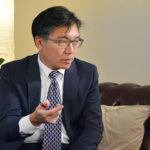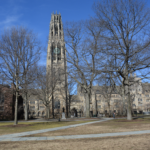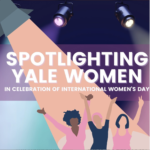
Alice Mao, Staff Illustrator
In response to student demand for opportunities to extensively study courses outside of their majors, the Yale College Council is advocating for the expansion of certificate programs.
Although the requirements vary for different certificates, fulfillment of a certificate typically requires students to achieve a certain grade in a certain number of courses under one academic discipline. Once completed, certificates are listed on student transcripts, according to the Yale College Programs of Study. Existing certificates include the certificate of advanced language study and certificates in education studies, data science and programming. Based on student input, the YCC is proposing policies that expand the current set of four certificate programs.
“Certificate programs offer flexibility to students, and allow them to gain some understanding of a field with proper acknowledgement, without having to fulfill a whole major,” said YCC Academics Director Saket Malhotra ’23. “They also offer a structured path for students to follow, so that they know what courses to take to have an understanding of any subject area.”
According to YCC Deputy Academics Director Iris Li ’24, the YCC has sourced certificate ideas from student responses to the Academic Survey the YCC conducted this fall, which surveyed over 1,500 students, according to Li. The YCC also put out a call on social media for students interested in pursuing new certificates to suggest them via an online form. When filling out the online form, students can express interest in certificates — including film and media studies, music and African American studies — and put forth their own ideas.
After identifying students who are interested in new certificate programs, Malhotra said that the YCC plans to relay their ideas to the directors of undergraduate studies who supervise the academic department that corresponds to each certificate proposal. According to Li, the process also involves researching similar offerings at peer institutions and noting which Yale courses might be relevant to the proposed certificate.
If the certificate proposals are approved, DUSes will then work with faculty to develop academic programs for the new certificates.
“I find it natural and unsurprising that Yale students develop new and sustained academic interests during their four years here,” Li said. “While they may not choose to major in that particular area, they can pursue a certificate in order to demonstrate their knowledge and interest in that area.”
Benjamin Franklin College Senator Alex Dong ’24 is currently leading the initiative for the implementation of an applied philosophy certificate.
According to Dong, 32 Yale College students expressed interest in completing a certificate in philosophy on the YCC survey.
Dong has worked on the development of a formal policy proposal that gives background information, explains why the applied philosophy certificate would complement existing fields of study, includes research about similar programs at peer institutions and details what the certificate would look like at Yale.
According to Li, if the certificate program can be successfully expanded, “It certainly has the capacity to mirror minor programs at similar institutions.”
Currently, Yale College does not have formal minor programs, instead allowing students to pursue interests outside of their majors through certificates or Multidisciplinary Academic Programs.
Malhotra described certificates, which require the completion of multiple courses within an academic department, as “functionally identical” to minors. MAPs, however, are focused on specific social challenges, including education, energy, human rights and global health, according to the YCPS.
But Li noted that students may be interested in academic areas that do not currently have a certificate program or a multidisciplinary program available — the reason behind advocating for an expansion of certificate offerings.
While Li acknowledged that the demands placed by new certificate programs on individual departments might mean that some certificate ideas are “not currently feasible,” she has high hopes for the future of these programs at Yale.
“I’m hoping that YCC can expand the certificate program to eventually include all of the most popular certificate candidates,” Li said. “While this definitely depends on each department’s resources and capacity, I’d love to see a Yale where students who pursue extended study of non-major courses receive recognition for their interest and knowledge of said subject.”
The form through which students can propose their ideas for new certificates is currently available online.
Lucy Hodgman | lucy.hodgman@yale.edu










